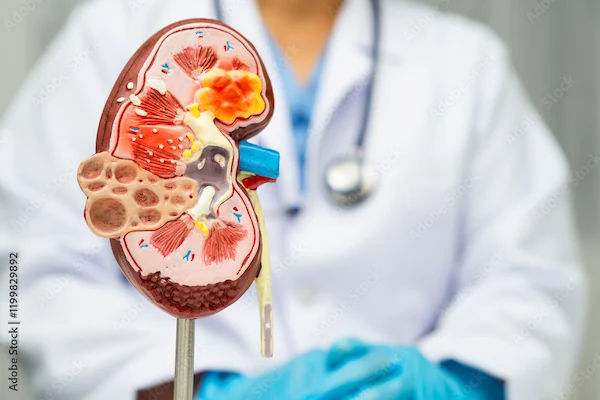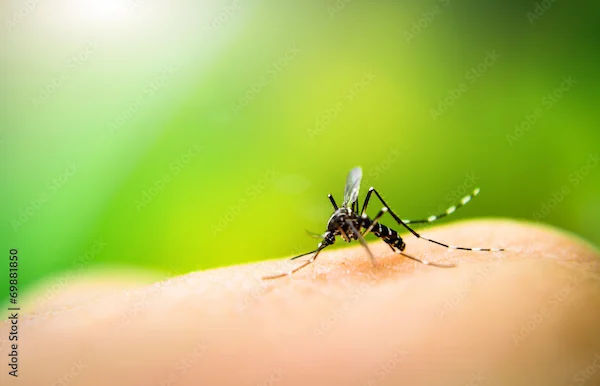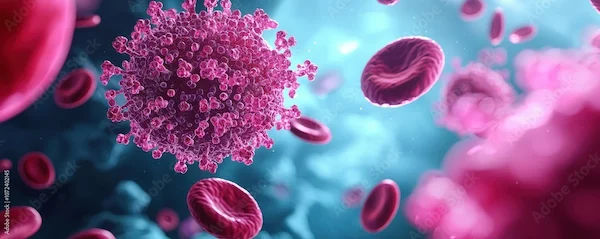How to Reduce Creatinine Level?
Learn about strategies to reduce creatinine levels. Discover lifestyle changes and medical options, but consult a doctor for personalized advice.

Written by Dr.Sonia Bhatt
Last updated on 3rd Jul, 2025

Creatinine is a waste product that can build up in the blood due to kidney disease and other factors. It is a natural waste product created by the muscles. The kidneys remove creatinine from the blood and excrete it in the urine. Creatinine levels in the blood and urine can be measured to assess kidney function.
Understanding Creatinine
Creatinine is a by-product of creatinine phosphate, which is involved in muscle energy production. It is typically removed from the body by the kidneys. Higher levels of creatinine can be a sign of kidney dysfunction or damage. Urine and blood tests can help measure creatinine levels and assess kidney health. Elevated creatinine levels can indicate impaired kidney function and require medical attention. A normal creatinine level for adults is 0.7–1.3 mg/dL for men and 0.6–1.1 mg/dL for women. However, normal range creatinine levels may vary slightly between laboratories.
Importance of Creatinine Levels in the Body
Creatinine levels are important because they are a key indicator of how well the kidneys function. As mentioned before, creatinine is a waste product produced by muscle breakdown that is primarily filtered out of the blood by the kidneys and excreted in the urine. Therefore, higher creatinine levels in the blood usually signify impaired kidney function. They can also signify dehydration or other health issues. It is crucial for individuals with pre-existing kidney conditions to monitor creatinine levels regularly.
Causes of High Creatinine Levels
Understanding the causes of elevated creatinine levels can help prevent and manage the condition effectively.
Factors that might contribute to high creatinine levels include:
Strenuous Exercise: Intense physical activity increases muscle breakdown, which raises creatinine levels. Muscle wear and tear, whether from intense exercises or conditions such as rhabdomyolysis, releases a higher amount of creatinine in the blood, leading to elevated levels.
Excessive Protein Intake: Consuming excessive protein can lead to increased levels of creatinine in the blood as the body breaks down more protein. This produces more creatinine as a by-product, putting additional strain on the kidneys to filter out this waste product. This is concerning, especially for those with pre-existing kidney issues.
Dehydration: Inadequate water intake can concentrate creatinine in the blood. When the body gets dehydrated, the kidneys have less fluid to filter waste products like creatinine, leading to a build-up in the bloodstream.
Use of Certain Medications: Some drugs, such as NSAIDs and antibiotics, can cause the body to retain more creatinine than usual, which may lead to higher serum creatinine levels.
Diseases that can affect kidney function and raise creatinine levels include:
Tumours
Chronic Kidney Disease (CKD)
Urinary Tract Obstruction
Diabetes
Systemic lupus erythematosus, sometimes called SLE or just lupus
Some infections, such as hepatitis B, hepatitis C, HIV and syphilis
Infections, shocks, and serious illnesses such as cancer can also cause high creatinine levels. Cancer can damage the kidneys and lead to elevated creatinine levels. If the glomerulus, the part of the kidney that filters the waste, is damaged or otherwise not working efficiently, a person may have high creatinine levels in the blood but low levels in the urine. This indicates the inefficiency of the kidneys’ function.
Symptoms of High Creatinine Levels
A temporary rise in creatinine levels does not induce any symptoms in humans. However, a prolonged increase in serum creatinine reflects a kidney disorder that manifests symptoms.
Below are high creatinine symptoms:
Muscle cramps
High blood pressure
Mental confusion
Chest pain
Swelling
Dry and itchy skin
Painful urination
Difficulty in breathing
Difficulty when sleeping
Fatigue and weakness
Nausea and loss of appetite
Diagnosis of High Creatinine Levels
A serum creatinine check, along with a urine creatinine check, helps in determining creatinine levels.
Serum Creatinine Test
A serum creatinine test follows the same procedure as a normal blood test. The health practitioner draws out blood using a syringe. Some medical professionals may even ask the patient to fast overnight before doing the test.
Creatinine Clearance Test
A creatinine urine test measures a patient’s creatinine clearance. Health professionals collect a urine sample and measure its creatinine to determine the patient’s creatinine clearance.
For both tests, the patient may be directed to stop consuming meat or taking creatine supplements before the test. Other tests may include glomerular filtration rate (GFR) to estimate kidney function and efficiency and kidney ultrasound to detect abnormalities in kidney structure.
Medical Treatments for Lowering Creatinine Levels
In cases where creatinine levels remain persistently high, medical intervention may be required.
Medications to help reduce creatinine include:
Diuretics: They help remove excess fluid and reduce creatinine build-up.
ACE Inhibitors and ARBs: They help lower blood pressure and protect kidney function.
Dialysis can be a treatment option because:
Dialysis helps when kidney function declines significantly.
It helps in removing waste and excess fluids from the blood.
Both haemodialysis and peritoneal dialysis can be effective, depending on individual needs.
Consult Top Dermatologist
Natural Remedies and Alternative Therapies for Reducing Creatinine Levels
Several natural approaches can support kidney function and help in lowering creatinine levels.
Some herbal supplements and their benefits include:
Astragalus can be used in traditional medicine for kidney protection.
Chamomile tea can help in detoxifying the body.
Stinging nettle may support kidney function and reduce inflammation.
To benefit kidney health, yoga, and meditation can play a crucial role.
Yoga poses like Bhujangasana (Cobra Pose) and Setu Bandhasana (Bridge Pose) can improve blood circulation, benefiting the kidneys. However, such asanas must only be done under the guidance of a professional yoga teacher or practitioner.
Meditation helps in reducing stress, which can directly benefit kidney health.
Diet for Managing Creatinine Levels
Diet plays a crucial role in controlling creatinine levels and maintaining kidney health.
Foods that can help reduce creatinine levels can include:
Whole Grains: Quinoa and brown rice provide essential nutrients without overloading the kidneys.
Fruits and Vegetables: They are rich in antioxidants and support kidney function.
Omega-3 Fatty Acids: They are found in fish like salmon and help reduce inflammation.
Foods that must be avoided include:
Processed Foods: These often contain high sodium and preservatives that can be harmful to kidneys.
Alcohol and Caffeine: Both can contribute to dehydration and worsen kidney function.
High-Protein Foods: Reducing the intake of dairy products and red meat can help.
Lifestyle Changes for Better Management of Creatinine Levels
Incorporating healthy habits can help significantly reduce creatinine levels.
Exercise and its Impact on Kidney Health
Moderate exercise promotes overall health without straining the kidneys. Avoiding excessive weightlifting and endurance activities prevents unnecessary creatinine spikes.
Importance of Hydration
Herbal teas and coconut water can aid in hydration. Drinking plenty of water helps in flushing out excess creatinine.
Preventive Measures to Lower Creatinine Levels
Taking proactive steps can help in preventing the onset of kidney dysfunction.
Healthy Lifestyle Choices
Regular physical exercise and stress management contribute to overall well-being. Maintaining a balanced diet and avoiding salt intake are also crucial steps in maintaining creatinine levels.
Regular Health Checkups
Routine blood tests help in monitoring kidney function. Early detection allows for timely intervention.
Conclusion
Managing creatinine levels effectively requires a combination of medical treatments, lifestyle changes, and dietary adjustments. Recognising symptoms early and taking preventive measures can help maintain kidney health. If creatinine levels remain high persistently, consulting a healthcare professional is essential to determine the best course of action. With a proactive approach, individuals can reduce the risk of kidney-related complications and improve their overall well-being.
Consult Top Dermatologist
Consult Top Dermatologist

Dr. K Chetana
Dermatologist
10 Years • MBBS, MD ( Dermatology)
Hyderabad
Apollo 24|7 Clinic, Hyderabad

Dr Usha B K
Dermatologist
4 Years • MBBS,MD (Dermatology, Venereology & Leprosy), DNB (Dermatology, Venereology & Leprosy), Fellowship in Trichology
Bangalore
Apollo 24|7 Clinic - Karnataka, Bangalore
(50+ Patients)

Dr. Hemalatha Naidu M
Dermatologist
5 Years • MBBS, MD (Dermatology)
Bangalore
Apollo 24|7 Clinic - Karnataka, Bangalore
(275+ Patients)

Dr. Jyotirmay Bharti
Dermatologist
15 Years • MBBS, DDV
Gurugram
SQUARE ROOTS- HAIR, SKIN AND LASER CLINIC, Gurugram
Dr. Kavitha Killaparthy
Dermatologist
23 Years • MBBS,DIPLOMA(DERMATOLOGY,VENEREOLOGY,LEPROSY)
Hyderabad
JDS Skin & Hair Clinic, Hyderabad
Consult Top Dermatologist

Dr. K Chetana
Dermatologist
10 Years • MBBS, MD ( Dermatology)
Hyderabad
Apollo 24|7 Clinic, Hyderabad

Dr Usha B K
Dermatologist
4 Years • MBBS,MD (Dermatology, Venereology & Leprosy), DNB (Dermatology, Venereology & Leprosy), Fellowship in Trichology
Bangalore
Apollo 24|7 Clinic - Karnataka, Bangalore
(50+ Patients)

Dr. Hemalatha Naidu M
Dermatologist
5 Years • MBBS, MD (Dermatology)
Bangalore
Apollo 24|7 Clinic - Karnataka, Bangalore
(275+ Patients)

Dr. Jyotirmay Bharti
Dermatologist
15 Years • MBBS, DDV
Gurugram
SQUARE ROOTS- HAIR, SKIN AND LASER CLINIC, Gurugram
Dr. Kavitha Killaparthy
Dermatologist
23 Years • MBBS,DIPLOMA(DERMATOLOGY,VENEREOLOGY,LEPROSY)
Hyderabad
JDS Skin & Hair Clinic, Hyderabad




